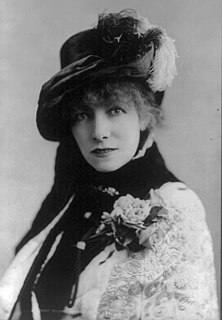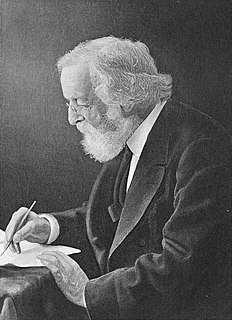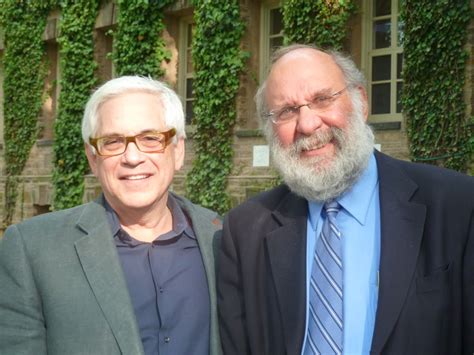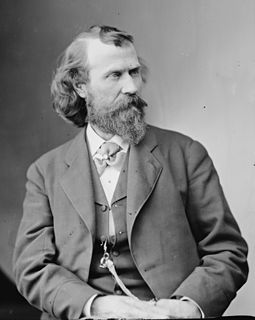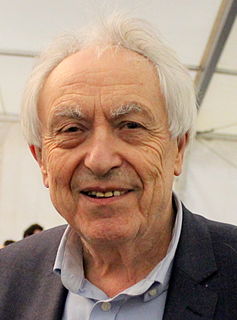Top 1200 Whom Quotes & Sayings - Page 4
Explore popular Whom quotes.
Last updated on December 23, 2024.
In making up my mind as to what Mr. Lincoln really believed, I do not take into consideration the evidence of unnamed persons or the contents of anonymous letters; I take the testimony of those who knew and loved him, of those to whom he opened his heart and to whom he spoke in the freedom of perfect confidence.
We must live for the few who know and appreciate us, who judge and absolve us, and for whom we have the same affection and indulgence. The rest I look upon as a mere crowd, lively or sad, loyal or corrupt, from whom there is nothing to be expected but fleeting emotions, either pleasant or unpleasant, which leave no trace behind them.
There are friends with whom we share neither interests nor any particular experiences, friends with whom we never correspond, whom we seldom meet and then only by chance, but whose existence nonetheless has for us a special if uncanny meaning. For me the Eiffel Tower is just such a friend, and not merely because it happens to be the symbol of a city, for Paris leaves me neither hot nor cold. I first became aware of this attachment of mine when reading in the paper about plans for its demolition, the mere thought of which filled me with alarm.
WEATHER, n. The climate of an hour. A permanent topic of conversation among persons whom it does not interest, but who have inherited the tendency to chatter about it from naked arboreal ancestors whom it keenly concerned. The setting up of official weather bureaus and their maintenance in mendacity prove that even governments are accessible to suasion by the rude forefathers of the jungle.
My own view is that friendship is essential to our becoming who we are. It provides a context within which we can, more or less safely, try different ways of being, different approaches to life, and our friends, to whom we open ourselves and by whom we are willing to be influenced and directed, play a central role in what becomes of us.
My brother, whom I adored, typed out a children's book illustrated by himself... at the age of 14. My sister, with whom I always shared a double bed, had that effortless superiority of someone six years older and anxious to show it. But we were each as shy as voles. It seemed safer to keep to each other's company.
For many observers, a child who has known nothing but war, a child for whom the Kalashnikov is the only way to make a living and for whom the bush is the most welcoming community, is a child lost forever for peace and development. I contest this view. For the sake of these children, it is essential to prove that another life is possible.
It is certain that those who have the living faith in their hearts see at once that all existence is none other than the work of the God whom they adore. But for those in whom this light is extinguished, [if we were to show them our proofs of the existence of God] nothing is more calculated to arouse their contempt. . . .
Very, very broadly speaking, you can put directors into two areas: One for whom you work, and the other with whom you work. And I prefer the latter, for obvious reasons. It's a great relief to feel that you're working with someone rather than for someone. You don't feel that you're being tested, as it were.
I am persuaded that if the brutes even--if the dog, the horse, the ox, the elephant, the bird, could speak, they would confess, that, at the bottom of their nature, their instincts, their sensations, their obtuse intelligence, assisted by organs less perfect than ours, there is a clouded, secret sentiment of this existence of a superior and primordial Being, from whom all emanates, and to whom all returns.
Our strategy is how we cope--how we measure and weigh what is to be said and when, what is to be done and how, and to whom and towhom and to whom, daily deciding/risking who it is we can call an ally, call a friend (whatever that person's skin, sex or sexuality). We are women without a line. We are women who contradict each other.
We disliked the rigours of existence, the unfulfilled longings, the enshrined injustices of the world, the labyrinths of love, the ignorance of parents, the fact of dying, and the amazing indifference of the Living in the midst of the simple beauties of the universe. We feared the heartlessness of human beings, all of whom are born blind, few of whom ever learn to see.
The confused mass of rules of conduct called law, which has been bequeathed to us by slavery, serfdom, feudalism, and royalty, has taken the place of those stone monsters, before whom human victims used to be immolated, and whom slavish savages dared not even touch lest they should be slain by the thunderbolts of heaven.
Our lives become the sum of all whom we have loved. It is important not to waste anyone. One task of living out the last half of life is excavating and recovering all of those whom we loved in the first half. Thus, the recovery of lost loves becomes an important way in which the past affects the present.
And what the people but a herd confus'd,
A miscellaneous rabble, who extol
Things vulgar, and, well weigh'd, scarce worth the praise?
They praise, and they admire, they know not what;
And know not whom, but as one leads the other;
And what delight to be by such extoll'd,
To live upon their tongues, and be their talk,
Of whom to be disprais'd were no small praise?
Within a single scene, it seems to be unwise to have access to the inner reflections of more than one character. The reader generally needs a single character as the means of perception, as the character to whom the events are happening, as the character with whom he is to empathize in order to have the events of the writing happen to him.
The people will have no need to change their place of concourse; where of old they were wont to sacrifice cattle to demons, thither let them continue to resort on the day of the Saint to whom the Church is dedicated, and slay their beasts, no longer as a sacrifice to demons, but for a social meal in honour of Him whom they now worship.
The chief difficulty is that God demands of us that we live by faith: faith in God, God's sovereignty over the future, God's sufficiency for the present; while, on the other hand, the various other gods whom we can serve appeal to us in terms of the things which we can see and the forces which we can calculate. The choice between the life of faith and the life of sight is a choice between a God whom only faith can apprehend and gods whom one has only to see to understand.
The generality of men are so bound within the sphere of their circumstances that they have not even the courage to get out of them through their ideas, and if we see a few whom, in a way, speculation over great things makes incapable of mean ones, we find still more with whom the practice of small things takes away the feeling for great ones.
At the end of the process we called a market research company to find out whom the film was for or what was the target audience. We didn't have a lot of money to release the film, so in order for it to play in cinemas, which are dominated by films with much larger marketing budgets, we had to discover whom the film was for.
It is curious that the two best-known British historians in the United States are Andrew Roberts and Niall Ferguson, each of whom represents, in fact, a different school of serious historical writing, and both of whom seem to have gained for themselves, perhaps without intending to, a special reputation on the American right.
A source of cheerfulness to a good mind is the consideration of that Being on whom we have our dependence, and in whom, though we behold Him as yet but in the first faint discoveries of His perfections, we see everything that we can imagine as great glorious, or amiable. We find ourselves everywhere upheld by His goodness and surrounded by an immensity of love and mercy.
Actually, I never tell for whom my songs are written. It's a kind of superstition! I started writing songs for not having the courage to say certain things in people's faces and started to put these feelings on paper... Over the years, became a mania and then I never talk about for whom they are made.
The truth for women living in a modern world is that they must take increasing responsibility for the skills they bring into birth if they want their birth to be natural. Making choices of where and with whom to birth is not the same as bringing knowledge and skills into your birth regardless of where and with whom you birth.
The Rosicrucians teach that all great religions have been given to the people among whom they are found, by Divine Intelligences who designed each system of worship to suit the needs of the race or nation to whom it was given. A primitive people cannot respond to a lofty and sublime religion, and vice versa.



